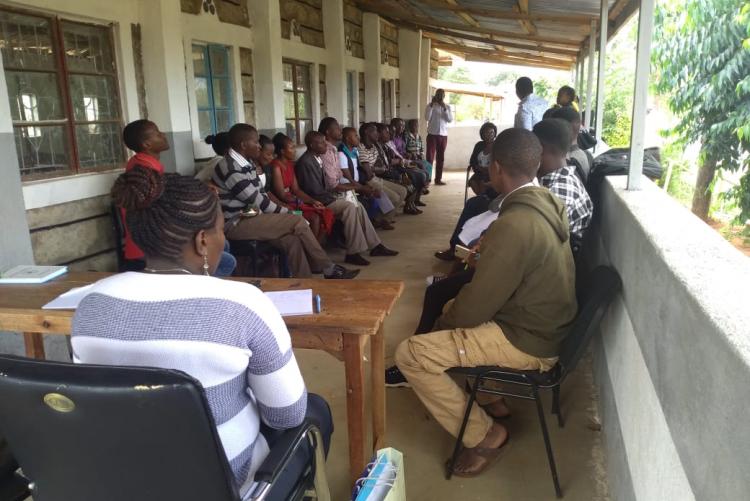After the promulgation of the Constitution of Kenya 2010. Different actors took it upon themselves to adopt it. Among them were institutions of higher learning that foster the country’s most volatile population ‘The Youth’. The Country has in the recent years faced a crisis resulting from Violent extremists targeting young people in a recruitment exercise aimed at committing heinous acts of terrorism. The University of Nairobi took up the lead, providing a voice through the UNESCO/ UNITWIN Chair in project Elimika to ask the youth to rise and take up their positions as University students for a Sustainable Culture of Peace and Security. First the focus was to capture the voices of student leaders from both public and private universities as representatives of the student’s body.
The Vice Chancellor of the University of Nairobi in his keynote address indicated that the “Wajibu Wetu” project had been an attempt to fall back on the wisdom of the authors of Sessional Paper No. 10; the vision of the Kenyan Nation as articulated in the National Anthem; and through University Research and Community engagement, to create a sustainable culture of peace and security both in our Universities and communities. He highlighted that despite the core mandate of Universities being to develop creative and critical thinkers through teaching, research, innovation and new technologies, the University of Nairobi, in 2012, put together a team to propose to the Ministry of Higher Education, Science and Technology, a University based Project on Sustainable Peace and Security. The Project was launched in January 2013 with a Vice Chancellors’ Round Table Conference here in Nairobi. He further stated that the University of Nairobi, in collaboration with the Ministry of Education, Ministry of Interior and National Coordination, Global Peace Foundation, and several partner Universities has organized workshops, visits to Schools, and other events to sensitize communities, students, and leaders on the role of Universities in the creation of a Sustainable Culture of Peace and Security.
The two days’ workshop brought together over one hundred student leaders drawn from both Private and Public Universities and Colleges. The vice chancellors and College Principals who facilitated the participation of the students, showed an act of commitment to peace and security in our Institutions and the country in general.
The student leader were asked to contemplate the following insights during the two day workshop: That they are uniquely positioned as leaders of today and tomorrow; that they are assets who can effectively disseminate messages of peace, they have important roles to play in society, as they ponder the question- Why me? And “Why not me?”; and, they should seek to promote and maintain a culture of peace.
The participants requested UNESCO to provide a platform for this ongoing movement of youth leaders to promote peace and security. They wondered how we could insist on justice if violence happens all around us and the student leaders asked how they could avoid vote seeking politicians. Concern was raised on Kenya being a post-conflict society and yet we have ignored reconciliation which is an integral part of peace building.

